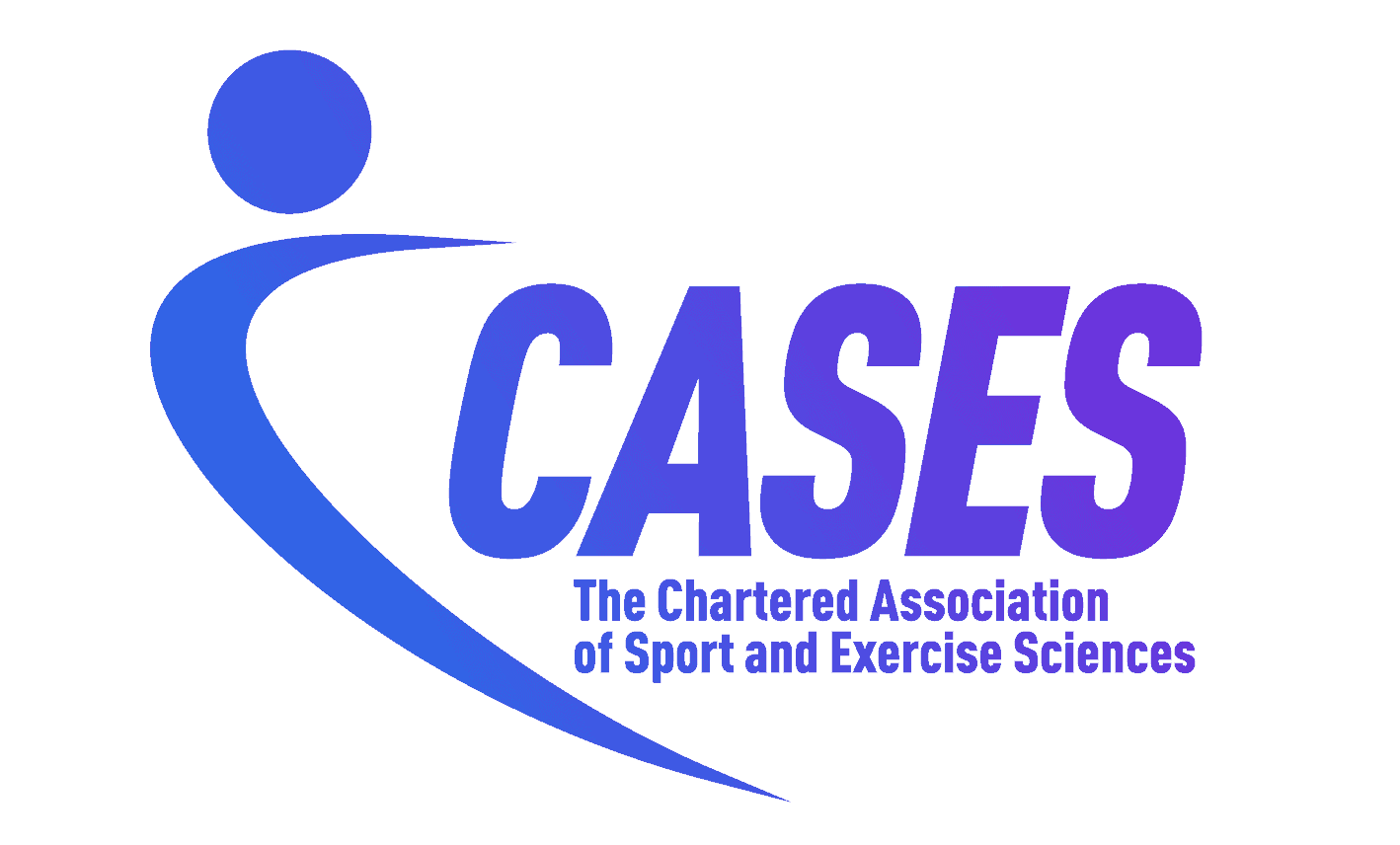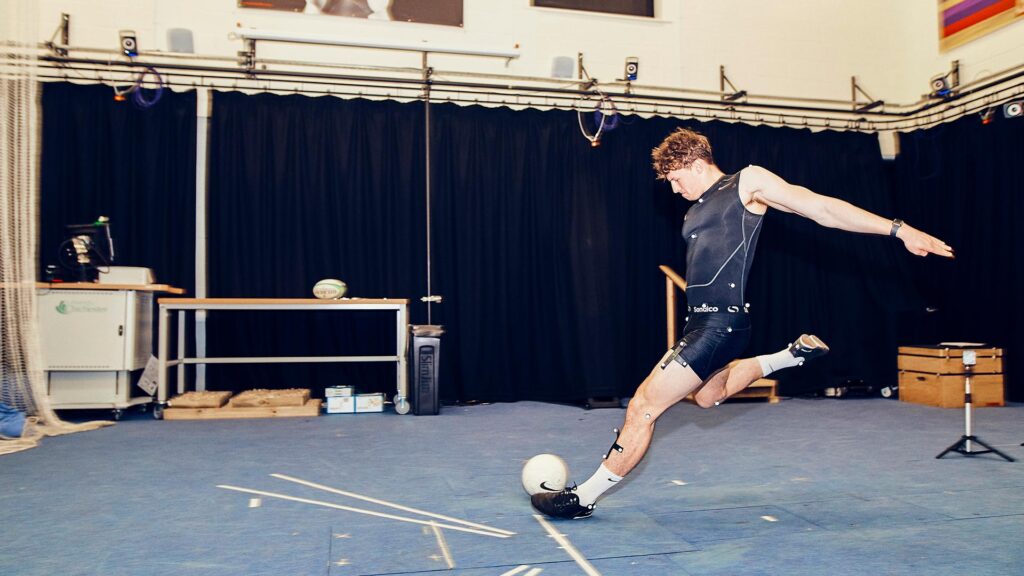Overview
Develop your knowledge of the sport and exercise sciences
The MSc Sport and Exercise Biomechanics provides you with an opportunity to study at a postgraduate level to fulfil the initial requirements for The Chartered Association of Sport and Exercise Sciences (CASES) accreditation, to develop your knowledge of the sport and exercise sciences and to increase your skills in applying such knowledge in both sporting and exercise populations
Within the past decade there has been a marked growth in the career opportunities available for sport and exercise biomechanists (e.g. teaching in further and higher education, World Class Support programmes).
Coupled with this growth, there has also been an increased need for appropriately qualified and accredited individuals to fill such positions.
CASES has developed procedures for the accreditation of suitably-experienced individuals that stipulate the possession of a relevant form of postgraduate qualification.

Aaron
The Course
Understand the biomechanics of leading sporting performance
This course provides you with the knowledge of advanced biomechanical principles, theories and practicalities, as you build towards you final research project.
Developing as an Applied Practitioner in Biomechanics
This is an opportunity to develop your skills in delivering applied consultancy in the biomechanics of sport and exercise.
Tissues, Modelling and Assistive Devices
This module covers wide-ranging applications of biomechanics research findings on areas such as muscle, tendon, ligament tissues, one/two joint muscles, muscle and joint energetics, prosthetic design, orthotic design and function, vibration training, in-silico modelling, and neuromuscular modelling.
Ergonomics in Sport & Exercise
You will understand areas of ergonomics research and practice where your skills as a biomechanist can be applied.
Applied Research Skills
An introduction to quantitative and qualitative methodology for biomechanics using practical and real-world examples to illustrate how we make sense of data.
Advanced Research Skills for Sport
You will learn and apply innovative and cutting-edge methods of analysis evident in biomechanics literature.
Experience
Discover a wide range of excellent sporting facilities that support your learning
Sports laboratories
We have four specialist sports labs including a virtual reality reader, brain imaging unit and an observation suite.
Sports injury clinic
Students use our specialist injury clinics these spaces for practical sessions and run a practice.
Tudor Hale Centre for Sport
Our world-class Tudor Hale Centre for Sport acts as the focus for sports science, therapy and physiology.
Sports hall
Our specialist sports hall can be used for a wide range of indoor sports, including basketball, netball, badminton and volleyball.
Specialist outdoor sports pitches
Alongside our grass football and rugby pitches, we also have our International Hockey Federation compliant floodlit astro turf.
Close community
Our commitment to a friendly and close-knit student community contributes to a high degree of success for our graduates.
Expert staff
Learn from experienced biomechanics and sports science specialists here to support you throughout your degree.
FA Women's High-Performance Football Centre
As one of only nine centres in the UK, we provide additional opportunities for women to develop as players and coaches.
Fitness suite
We offer a variety of cardio, resistance and weight equipment, with a dedicated strength and conditioning room.
Sports Dome
The Sports Dome is a large indoor facility which can be used for sports such as cricket, football, hockey and many more.
Learning Resource Centre
The Learning Resource Centre (LRC) contains the library, a café, IT/teaching rooms and the Support and Information Zone (SIZ).
Library
Our campus library holds more than 200,000 books and over 500,000 eBooks.
Subject specific librarians
If you have difficulty finding material for an essay, seminar or project, subject librarians will be happy to provide assistance.
Teaching and Assessment
Innovative teaching methods that focus on practice
Teaching
Our team of principal lecturers ensure innovation, enthusiasm and expertise combine to deliver the excellent standards that give our institution its high reputation.
When you come to Chichester, you will join a community of students and lecturers working in partnership to ensure that your learning experience reflects best practice and embraces the opportunities presented by new, interactive technologies.
Each module is delivered differently depending on its content and focus of study.
In most modules you can expect lead lectures to introduce core content, but the majority of your time will be spent working in small groups with tutor support in seminars, workshops or laboratory sessions.
Many sessions will require you to have completed some preparatory work and you will also be given structured follow-up work after a session to further progress your learning, often reading or an individual/group task. As you progress through your degree you will be expected to take more and more ownership over your learning and development, directing your study into areas of most interest to you.
Assessment
You will be assessed by a variety of methods, including essays, examinations, portfolios, practical assessments, lab reports and oral presentations.
Our course includes a mix of assessments so that you may develop a wide range of transferable skills. Modules are assessed at every stage of the course, offering cumulative assessment of your progress.
You can monitor your own progress, allowing you the opportunity to discuss and plan your development with your lecturers throughout the course. Where appropriate special arrangements can be made for students with an identified need.
- To gain a Postgraduate Certificate in Sport and Exercise Biomechanics, you need to complete three modules. Each module is assessed by a 4,000-word assignment.
- To gain a Postgraduate Diploma in Sport and Exercise Biomechanics, you need to complete six modules. Each module is assessed by a 4,000-word assignment.
- To gain an MSc in Sport and Exercise Biomechanics, you need to complete six modules, and a dissertation of 12,000 words or a supervised experience portfolio.
Careers
Acquire the skills and knowledge required to gain employment with the sports industry
We understand the importance of ensuring that you have the knowledge, skills and experience to compete successfully in today’s challenging jobs market.
Typical careers include:
- High-level performance coaching
- Personal training
- Physiotherapy
- Gait analysis expert
- Sport coaching
- PhD research.
Student View
"Lecturers are always available to help and answer questions and their open door policy provides a relaxed and welcoming atmosphere."
Andy
Mark
Megan
Dev
Amy
Course Costs
Course Fees 2025/26
UK fee
International fee
For further details about fees, please see our Tuition Fees page.
For further details about international scholarships, please see our Scholarships page.
To find out about any additional costs on this course, please see our Additional Costs page.
Entry Requirements
- An honours degree at 2:1 or higher in a related discipline.
- You will also be required to attend an interview.
If English is not your first language then English language proficiency required is IELTS 6.5 (with no element less than 5.5) – or equivalent qualification
International students who don't meet the entry requirements
If you are an international student and do not yet meet the entry criteria for this course, you may be eligible for our International Premaster’s Programme. This is a one-semester programme that allows you to progress onto a master’s course at the University of Chichester.


